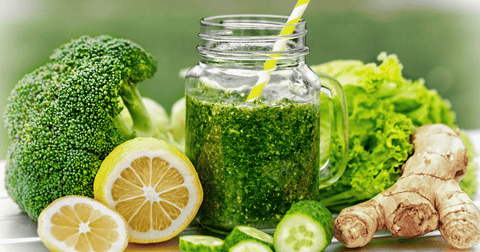Nature’s balancing botanicals
Herbs to help relieve stress, boost immunity and strengthen vitality
Buy MASTER ADAPTOGENS
Adaptogenic supplements are rising in popularity, testimony to how these herbs can actually enhance our mental and physical health, and diminish the damage caused by our fast-paced modern lives.
Along with the essential decluttering of diet and lifestyle, and prioritising self-care, adaptogens are a good place to start when looking for dietary support.
The key is to find the right one for you by trying and testing. While one may be energising for your friend, the same one might be calming for you.
DISCLAIMER
• Always check with your healthcare practitioner before using medicinal foods/superfoods during pregnancy or on prescribed medication.
WHAT IS AN ADAPTOGEN?
Well, as the name suggests, it has the ability to adapt according to the needs of your body. It’s balancing and stimulating, energising and calming. It’s multi-dimensional. The first recorded functional definition of adaptogens in the 1940’s is:
- An adaptogen is non toxic to the recipient.
- An adaptogen produces a nonspecific response in the body—an increase in the power of resistance against multiple stressors including physical, chemical, or biological agents.
- An adaptogen has a normalising influence on physiology, irrespective of the direction of change from physiological norms caused by the stressor.
This may seem magical, and it is, but as Sayer Ji of GreenMedInfo explains, modern science reveals the little wizards behind the curtain are exosomes that pass on information which modulates the expression of our DNA.
That sounds fancy, but what does it mean? The simplest explanation is that these intelligent plants are actually communicating with our bodies to find out what is needed where and then helping it to come back into balance by modulating (slowing down, speeding up, increasing, decreasing – similar to the actions of a thermostat) the systems in our bodies to rejuvenate our vital force. How neat is that?!
A scientific quote from the book Adaptogens: Herbs for strength, stamina, and stress relief by David Winston and Steven Maimes:
“…This normalizing influence implies the capability of adaptogens for a bidirectional effect on physiological function. This is very unique and has led some observers to declare that adaptogens have “intelligence.” In fact, this impact on the body’s homeostatic control mechanisms baffles many conventional Western pharmacologists. Adaptogens produce changes in the body because of their stimulation and balancing of several systems, including the neuroendocrine and immune systems. They are capable of either toning down the activity of hyperfunctioning systems or strengthening the activity of hypofunctioning systems, thus having a normalizing effect.”
HOW DO ADAPTOGENS HELP US TO DEAL WITH STRESS?
Stress is a daily part of our modern lives, and a certain amount of stress is needed to keep us active, but the frightening fact is that with so many stressors and no strategy or support to switch off the stress response, we can create lasting damage to our brains.
Ideally we need less daily stressors and a lifestyle overhaul, but an easy first step is to support your system with ADAPTOGENS.
They help to turn off the stress response, allowing our brains to switch off the alarms, normalise the adrenal function, turn cortisol production off and return our body to its normal state which is how a natural, healthy stress response should conclude.


LIST OF ADAPTOGENS
Adaptogens are often referred to by their botanical names, so here is a quick reference table of the list of adaptogens with their botanical names and active ingredients.

READ MORE ABOUT THESE ADAPTOGENS:

HEALTH BENEFITS OF ADAPTOGENS
Hmmm, easier said than done. This section could go on for pages if we listed all the specific benefits… there are far too many to count! So, in the following list each item is the fundamental benefit which can be extrapolated into many more specific symptomatic benefits.
- Relieve the effects of physical and mental stress
- Support the endocrine system (hormones)
- Support the Autonomic Nervous System (automatic processes such as breathing, heart function and digestion)
- Help to regulate mood
- Help to reduce fatigue
Next, a quick summary of which adaptogens can be used for specific needs.

ADAPTOGENS FOR HORMONE BALANCE
Hormones govern so much more than our reproductive system. Made by the organs in the endocrine system, they are messengers that tell our bodily systems what to do and when, they affect every aspect of our health, are responsible for things like mood, emotions, metabolism, sleep-wake cycle, homeostasis, fertility, growth, appetite, sexual function and body temperature. The list goes on.
All adaptogens help the endocrine system to function optimally. That’s a short sentence which describes a long list of health effects that one can experience due to the endocrine modulating effects of adaptogens.

ADAPTOGENS FOR REDUCING STRESS
- American Ginseng
- Amla
- Ashwagandha
- Asian ginseng (Red Ginseng)
- Astragalus
- Cordyceps
- Dang Shen
- Eleuthero
- Guduchi
- He Shou Wu (Foti)
- Holy Basil
- Jiaogulan (Gynostemma)
- Licorice
- Lyceum (Goji Berries)
- Peruvian Ginseng (Maca)
- Prince Seng
- Reishi
- Rhaponticum
- Rhodiola
- Schisandra
- Shatavari
- Shilajit

ADAPTOGENS FOR DECREASING ADRENAL FATIGUE
- American ginseng
- Ashwagandha
- Asian ginseng (Red Ginseng)
- Cordyceps
- Dang shen
- Eleuthero
- Holy Basil
- Jiaogulan (Gynostemma)
- Licorice
- Peruvian Ginseng (Maca)
- Reishi
- Rhaponticum
- Rhodiola
- Schisandra

THE IMPORTANCE OF WHOLE HERB ADAPTOGENS
Western pharmacology’s reductionist approach is usually based on isolating active compounds from healing plants. This means that they miss out on all the accompanying active constituents of the plant which contribute immensely to the healing effects.
An easy way to understand the implications of that is to imagine a plant as a piece of music. A plant is made up of many different elements, which you can imagine as the music notes. Some are easier to hear, like active plant constituents, and some blend in to create the overall harmony, like inactive plant constituents.
To separate the music notes out, expecting to create the same feeling as when you hear the whole song, is similar to isolating the active plant constituents, expecting to create the same healing impact that the whole plant would have. You may be able to recognise the song that the notes come from, but it’s a weak reflection of the complete, glorious piece of music.
These inactive plant constituents that are omitted in the isolates could be essential for effects such as enhancing absorption, counteracting toxicity and preventing negative effects
HOW TO USE ADAPTOGENS
You can find products that are conveniently capsuled, and some are available in powders so that you can use them in recipes for those who are not fond of taking capsules.
Because of the varying affects we would recommend you experiment with the time of the day that you take them. If something is going to make you sleepy then you would take that closer to bedtime, and if it’s more energising then definitely sometime during the day.
DOSAGE IS KEY
SPECIAL CONDITIONS
If you have specific health conditions or are on prescription medication it’s always recommended to consult your healthcare practitioner before including new things in your diet. Remember that for centuries these herbs have been used in Ayurveda and Chinese Medicine where a person would consult their doctor who would specify a herb depending on their current state of health and history.
Adaptogens are considered safe, but some common sense is always required because individuals can experience adverse effects in certain situation such as allergies, or in some sensitive individuals, increased blood pressure. Pregnant women should also be cautious.
ADAPTOGENS FOR CHILDREN
COMBINING ADAPTOGENS
Try our Master Adaptogens Nutritional Activator blend

COMPLEMENTARY NOOTROPIC HERBS TO USE WITH ADAPTOGENS
Brahmi, also known as Gotu Kola, botanical name Bacopa monnieri: only use organically grown plants as Bacopa readily absorbs pollutants from the water it is cultivated in. It is used to promote memory and focus. It is also said to be anti-anxiety, and slow the progression of Alzheimer’s disease.
Ginkgo biloba: a well-known herb used for improving blood circulation in the brain. Use tinctures or clean extracts, free of maltodextrin, silicone dioxide, or other common substrates that extract liquid is sprayed onto as part of the processing.
Lavender, botanical names Lavendula angustifolia, L. latifolia: used as an antidepressant and mild nootropic, lavender promotes restful sleep, helps with nervous headaches and stalls mental decline from Alzheimer’s.
Rosemary, botanical name Rosmarinus officinale: known as the herb for remembrance, Rosemary is used for cloudy thinking, menopausal brain fog and liver headaches.
Grape seed extract, botanical name Vitis vinifera: a powerful antioxidant that can help with age-related memory loss.

Further reading
Adaptogens: Herbs for Strength, Stamina, and Stress Relief by David Winston
Web articles





Comments (0)
There are no comments for this article. Be the first one to leave a message!